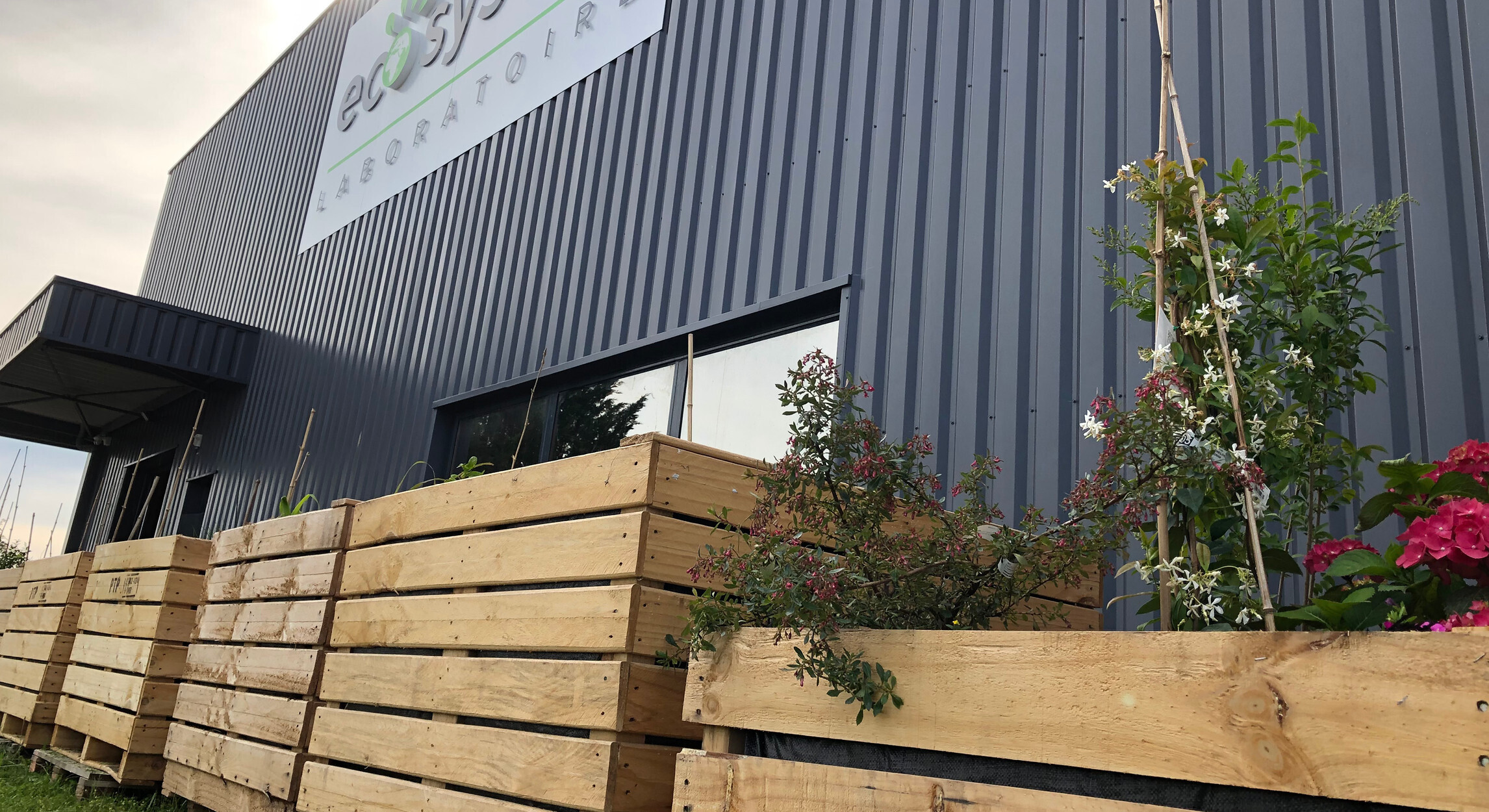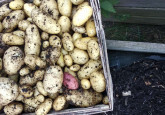A few days ago, Frédéric Pottecher, President & Founder of our Laboratory, welcomed young members of the Patay eco-garden club to our premises. Indeed, on May 4, during an organized visit, a dozen children from this club came to meet us to share their knowledge on the theme of permaculture. With a variety of workshops, questions and answers, everything was prepared for these youngsters to leave their visit with a head full of ideas!
The visit:
The college in Patay (45), located just a few hundred meters from our company, is not lacking in dynamism. It offers young people with a passion for the environment, nature and permaculture the chance to join a club called "éco-jardin", with the aim of sharing these common passions with other members. As our Laboratory also shares these interests and values, a visit to our premises was organized on May 04 for a dozen members of the club and two accompanying adults. All in all, more than 2 hours were spent on our premises, with a wide range of themes relating to the environment and permaculture, and a variety of discovery workshops so that our young visitors can reuse what they've learned when they get back to school! Would you also like to learn a little more about permaculture and what you can do to ensure a more sustainable future? Well, here's a summary of the workshops offered to our young visitors!
Permaculture:
Permaculture is a sustainable farming method based on the observation and imitation of ecosystems and natural cycles. The word "permaculture" itself is a contraction of "permanent (agri) culture". Permaculture is an ethical design approach to building sustainable human habitats by imitating the way nature works. Permaculture is based on three fundamental ethics: caring for the land, caring for people, and redistributing surpluses equitably. Bill Mollison, one of the two inventors of the word "permaculture" in 1970, defines it as follows: "permaculture is an ethical design approach to building sustainable human habitats by imitating the way nature works.".
Composting:
Composting is a natural process of decomposition of organic matter that occurs under specific conditions. It is a sustainable, environmentally-friendly method of managing organic waste, such as kitchen scraps, dead leaves and garden waste. Composting has many advantages. First and foremost, it reduces the amount of waste sent to landfill, helping to preserve the environment. By transforming organic waste into compost, it also produces a nutrient-rich natural fertilizer that can be used to fertilize garden, kitchen garden and farm soil. It's a simple practice accessible to all, helping to preserve the environment, produce natural fertilizers and improve soil fertility.
Beehives:
We have beehives in our secluded grounds, which provide us with tasty, high-quality honey every year. Installing beehives has many benefits, both environmental and economic/social. Here are some of the main benefits:
- Pollination : Bees play an essential role in the pollination of plants, which promotes the reproduction and production of fruit, vegetables and seeds. By installing beehives, you encourage pollination in the surrounding area, which can improve the quality and quantity of harvests. This is particularly beneficial for fruit crops, gardens and green spaces.
- Preserving biodiversity : bees contribute to biodiversity by pollinating a wide variety of plants. By installing beehives, you create an environment conducive to the diversity of plant and animal species. This promotes the balance of local ecosystems and the preservation of flora and fauna.
- Environmental awareness : installing beehives can serve as a starting point for raising awareness of the importance of environmental protection and bee conservation. Raising environmental awareness helps to promote sustainable behavior and a better understanding of ecosystems.
- Helping to save bees : Bees face many challenges, including pesticides, habitat loss and disease. Installing beehives contributes to saving bees by providing additional habitat and supporting colonies. This can help preserve the bee population and maintain the ecological balance.
Vertical cultivation
Vertical cultivation is an innovative method of growing plants by exploiting the verticality of space. They offer numerous advantages, including optimizing available space, increasing food production and improving the energy efficiency of buildings. Plant walls, vertical gardens and growing towers enable the cultivation of a wide range of plants, from vegetables to ornamentals, while creating an aesthetically pleasing environment and improving air quality. Vertical crops play an important role in urban areas where ground space is limited, contributing to sustainable urban agriculture and the creation of greener, more resilient cities.
The day in review:
Supervised by two dedicated and passionate guides, and after asking many questions during each workshop, our inquisitive youngsters left full of new knowledge! It looks as though there will be even more projects for the club in the coming weeks... and that's all to the good! Finally, we'd like to thank the entire Patay Eco-Garden Club for the quality of the day's exchanges.










